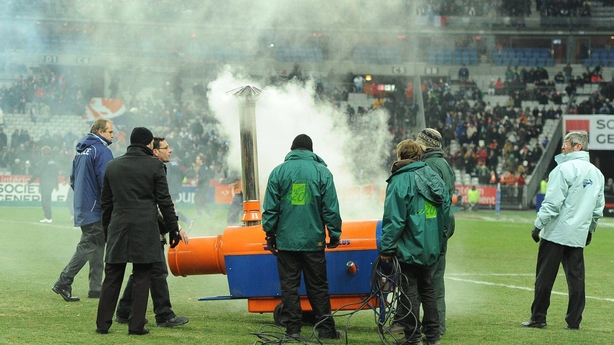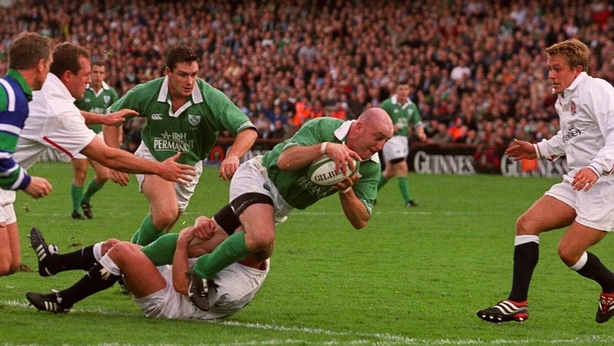The Irish Rugby Football Union is actively working on rescheduling the Guinness Six Nations clash with Italy, which has been postponed due to fears over the coronavirus.
The Women's and Under-20’s matches against Italy, scheduled over the same weekend 6/7/8 of March, have also been postponed.
The IRFU cancelled the game following a meeting with the health minister and have said: "We will immediately begin to work with our Six Nations partners to look at the possibility of rescheduling the matches and would hope to have an update on this in the coming days."
Ticket holders for the Italy game have been asked to retain their tickets.
The last senior Ireland Six Nations match to be postponed was on 11 February 2012 when a frozen pitch at Stade de France forced the round-two game against France to be called off just minutes before kick-off.

The match, which ended in a 17-17 draw, took place three weeks later on 4 March, meaning that Ireland played on four successive weekends.
However, the cancellation of this round-four game means there is no free weekend available ahead of the final round of games scheduled to take place on 14 March.
The most recent comparable postponement came in 2001 when an outbreak of foot and mouth disease forced the cancellation of Ireland’s spring fixtures against Scotland, Wales and England.
The Scotland Test was played in September of that year, while the Wales and England matches took place in October, Ireland famously denying the Red Rose a Grand Slam in the final game.

As is stands, France, should they beat Scotland away on Sunday week, will host Ireland on the final evening going for a Grand Slam, having already beaten England, Italy and Wales.
That still leaves the Italy match to be played and the IRFU, the Italian Union (FIR) and the Six Nations must find a suitable date.
England’s final-round clash against the Italians in Rome is now also threatened.
The BBC’s Rugby Union correspondent Chris Jones says it is "very unlikely" to go ahead under the current circumstances. That would, of course, add further difficulty in trying to find a window to complete the fixture list.
Andy Farrell’s side will travel to Australia for a two-Test tour this summer with games on 4 and 11 July.
There had been some talk about adding a third date but that has not materialised.
Italy, meanwhile, will face away games against the USA and Canada on the same dates as well as a trip to face Argentina the following week.
"In what is a very cluttered season, because of the World Cup, finding a date is going to be very difficult" - Donal Lenihan on the sporting implications of #IREvITA being postpomed #SixNations pic.twitter.com/IccGHDcbjg
— RTÉ Rugby (@RTErugby) February 26, 2020
Ireland will host Australia, South Africa and Japan on successive Saturdays between 7-21 November but since 2016 the team have played an extra Test outside the designated international window twice.
The first was against New Zealand in Chicago in 2016 and the second came against Italy in 2018 in the same city.
Italy’s November games include home ties against World Cup winners South Africa, Uruguay and Australia.
Alternatively there are two down weekends in the Guinness Pro14 championship.
Leinster and Ulster are involved in Heineken Cup quarter-finals on the first weekend of April, but should they both lose, to Saracens and Toulouse respectively, then the players from all provinces would have no European or Guinness Pro14 games scheduled for the weekend of 1/2/3 May or 23 May.
In a statement, Six Nations organisers said: "We will be holding further discussions with all six Unions with respect to the rescheduling options for all the affected games, factoring in the current dynamic situation.
"All other matches are currently scheduled to go ahead as normal. We will continue to monitor the situation very closely with all Unions and the respective Government authorities and health organisations."
The unpredictable nature of the spread of the virus means that organisers certainly have a tough job to get the tournament done and dusted.
We need your consent to load this rte-player contentWe use rte-player to manage extra content that can set cookies on your device and collect data about your activity. Please review their details and accept them to load the content.Manage Preferences







